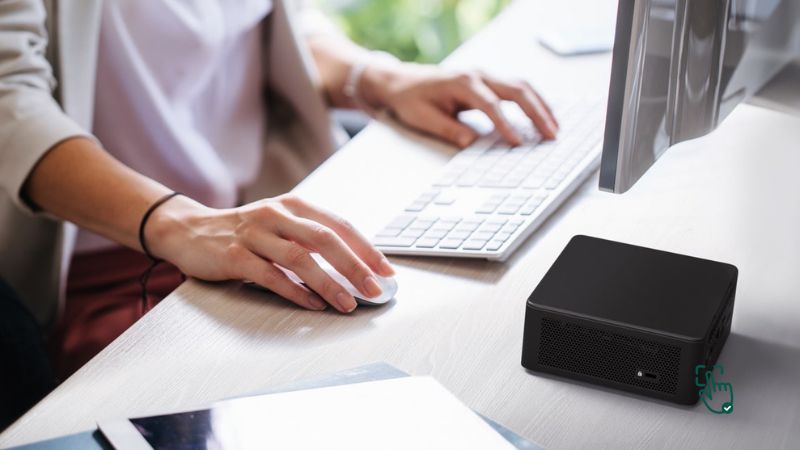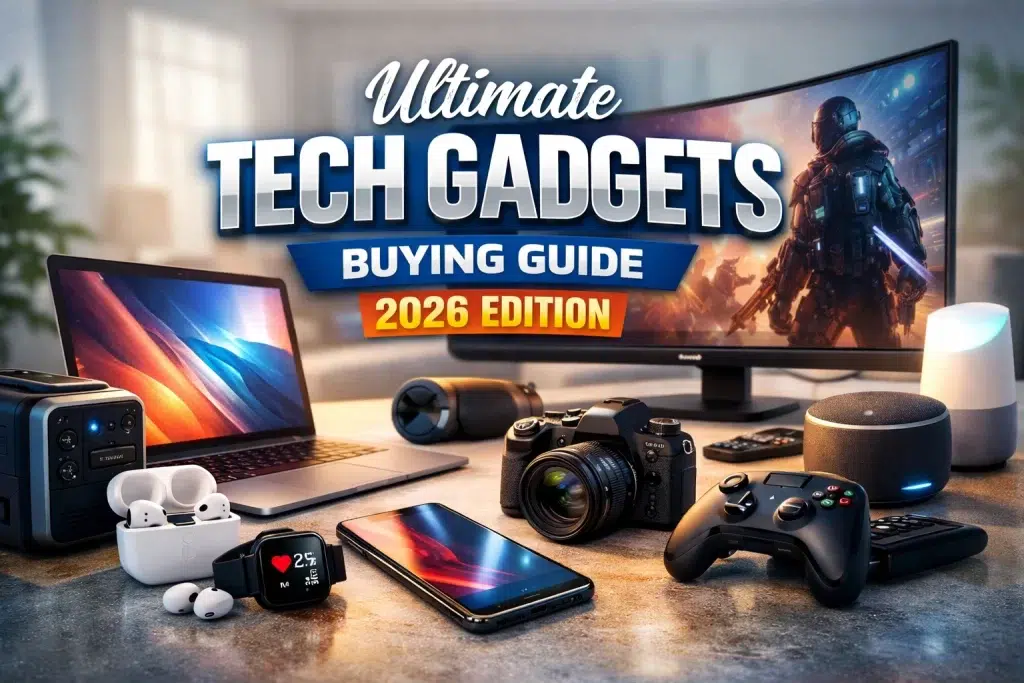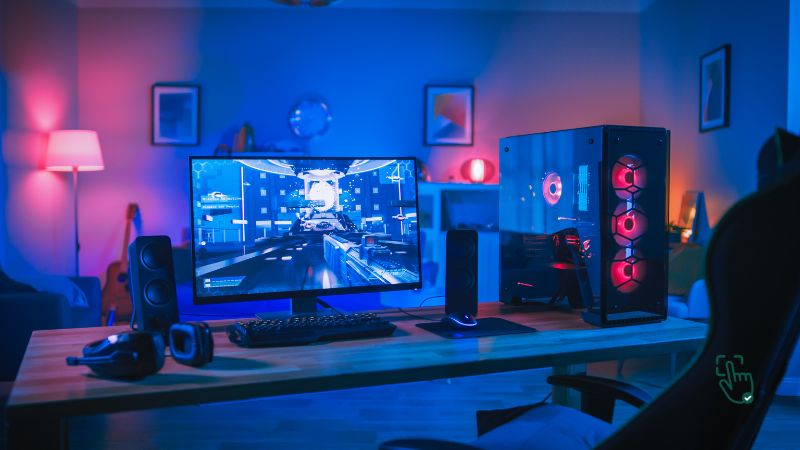
Looking for powerful computing in a small package? The Best Mini PC options in 2024 pack power, portability, and performance in a tiny footprint! Whether you need something compact for work, gaming, or streaming, a mini PC can be a fantastic alternative to bulky desktops or even laptops. But choosing one can feel overwhelming with so many options out there. Let’s dive into the best picks, what they can do, and how to pick the ideal mini PC for you.
What Is a Mini PC and Why Should You Consider One?
A mini PC is a compact desktop computer that’s small enough to fit in your hand yet can handle tasks like web browsing, video streaming, work projects, and even some gaming. Think of it as a powerhouse packed into a tiny, sleek shell. Many people opt for a mini PC for its space-saving design, lower energy consumption, and sometimes even affordability. Plus, these little devices are easy to set up and portable—perfect for small spaces or people on the go.
Why Get a Mini PC in 2024? Key Advantages
- Compact and Portable: Mini PCs are small, which means they’re easy to move around and set up in any location. If you’re limited on space, these computers can fit almost anywhere—from under your monitor to the back of a TV.
- Energy-Efficient: Unlike traditional desktops that require significant power, mini PCs consume less energy, which is great for both the environment and your electricity bill.
- Flexible Uses: Many mini PCs are versatile, letting you use them as home media servers, workstations, or gaming setups. They’re also compatible with a wide range of software.
- Upgradeability: Some mini PCs come with expandable storage and memory, letting you customize them according to your needs.
Top Mini PCs for 2025 – Compact Powerhouses You Need to Check Out
Mini PCs have come a long way, and 2025 is shaping up to be another killer year for compact computing. Whether you’re looking for a powerhouse for work, a budget-friendly media center, or a Chrome OS device for simple tasks, there’s a mini PC that fits the bill. Let’s break down the best options you can get your hands on this year.
1. Intel NUC 11 Performance Kit – The Compact Powerhouse
If you need power in a small package, the Intel NUC 11 Performance Kit is a solid pick. This little beast packs a punch with Intel Core i5 and i7 options, making it a fantastic choice for work, media, and even some light gaming. The best part? It’s highly customizable, letting you tweak the RAM and storage to fit your needs. It’s tiny but mighty, perfect for those who want performance without a massive desktop tower.
However, the NUC 11 isn’t exactly cheap—you’re paying a premium for that compact power. Plus, if you plan to push it with heavy multitasking or gaming, you might notice it heats up a bit. An external cooling solution might be worth considering.
Related Products You Might Like:
- Intel NUC 13 Extreme Kit – A more powerful (but pricier) upgrade.
- Corsair One i300 – A high-end compact PC for gamers and creators.
- Cooler Master NotePal X-Slim – A slim cooling pad for mini PCs.
2. Apple Mac Mini M2 – The Perfect Mini PC for Creatives
If you’re all-in on the Apple ecosystem, the Mac Mini M2 is hands down one of the best mini PCs for 2025. Powered by Apple’s M2 chip, this little machine is a beast for video editing, music production, and general creative work. It runs silently, handles high-performance tasks with ease, and, of course, looks clean and minimal on any desk.
But here’s the thing—Apple keeps things locked down. Unlike Intel-based mini PCs, you’re not getting much customization or upgradability. What you buy is pretty much what you’re stuck with. Also, Apple tax is real, so expect to pay a premium for that sleek design and Apple’s legendary performance.
Related Products You Might Like:
- Apple Mac Studio M2 – If you need even more power.
- LG UltraFine 5K Display – A perfect companion for Mac Mini users.
- Satechi Type-C Hub for Mac Mini – Expands ports and adds more functionality.
3. Acer Chromebox CXI4 – The Best Budget Chrome OS Mini PC
For those who live and breathe Chrome OS, the Acer Chromebox CXI4 is a fantastic budget-friendly choice. It’s fast, simple, and hassle-free—perfect for web browsing, online work, and media streaming. If you rely on Google services and don’t need heavy-duty software like Photoshop or high-end video editing tools, this mini PC will handle everything effortlessly.
The downside? Well, it’s Chrome OS—which means you’re pretty much stuck in Google’s ecosystem. If you need Windows or macOS for work or software compatibility, this won’t cut it. But if you’re after a reliable and affordable desktop for casual use, it’s a steal.
Related Products You Might Like:
- ASUS Chromebox 4 – Another solid Chrome OS mini PC with similar specs.
- Logitech K580 Keyboard – A great wireless keyboard built for Chrome OS.
- Samsung 32” M8 Smart Monitor – A Chrome OS-friendly display with built-in apps.
4. Beelink EQi12 – The Best Budget Windows Mini PC
If you want a mini PC that won’t break the bank, the Beelink EQi12 is a fantastic choice. It’s affordable, compact, and surprisingly capable for everyday tasks like web browsing, office work, and media playback. Plus, it runs Windows, so you’re not limited to Chrome OS or macOS.
Of course, don’t expect to game on this thing—its graphics capabilities are pretty basic. If you’re planning to store a ton of files, you may also want to grab an external hard drive or SSD, as storage space can fill up quickly. But for lightweight use, home office setups, and even media centers, this is a great pick.
Related Products You Might Like:
- Beelink SER5 Mini PC – A slightly more powerful upgrade.
- Seagate Portable 2TB External Hard Drive – A great storage expansion option.
- Logitech MX Master 3S Mouse – A perfect productivity mouse for mini PCs.
How to Choose the Best Mini PC for Your Needs
When shopping for a mini PC, it’s crucial to match its specifications with your intended use. Here’s what to consider:
- Processor and Performance Needs: If you’re planning on heavy multitasking or content creation, look for mini PCs with powerful processors like the Intel Core i7 or Apple’s M2 chip. Lighter tasks can get by with Intel Core i3 or lower.
- RAM and Storage: Many mini PCs come with 8GB or 16GB of RAM. For daily browsing and media, 8GB is often enough, but if you’re editing videos or playing games, opt for 16GB or more. Look for storage options that allow for upgrades, especially if you plan to store a lot of files locally.
- Connectivity Options: Make sure the mini PC has enough ports for your needs—USB-C, HDMI, and Ethernet are common requirements. Some models even offer Thunderbolt 4 for ultra-fast data transfers.
- Graphics Performance: If you’re interested in gaming or graphic-intensive tasks, look for models with integrated or discrete GPUs. The Intel NUC and Mac Mini M2, for example, can handle light to moderate gaming.
- Budget: Mini PCs range from under $200 for basic models to over $1000 for high-end versions. Set a budget according to what you need your mini PC to do and avoid overspending on features you won’t use.
Where to Buy the Best Mini PCs?
Popular online retailers like Amazon, Best Buy, and Newegg offer a wide selection of mini PCs, often at competitive prices. Check for seasonal sales like Black Friday, Cyber Monday, or Amazon Prime Day to score discounts. If you’re comfortable with refurbished products, both Apple and Dell have certified refurbished options at a lower price.
When to Use a Mini PC Over a Desktop or Laptop?
A mini PC can be a better choice over a traditional desktop or laptop in several situations:
- For Home Theater Systems: Mini PCs are great as media centers. With options like the Mac Mini M2 and Intel NUC, you can easily stream 4K content.
- For Small Workspaces: If you’re working from a small desk or need a computer in a tight space, the compact design of mini PCs is ideal.
- For Portability: Although mini PCs aren’t as portable as laptops, they’re much easier to transport than desktops. This makes them perfect for people who need to move their setups frequently.
Honest Reviews: The Downsides of Mini PCs
While mini PCs are convenient, they’re not without drawbacks:
- Limited Upgradeability: Most mini PCs come with limited options for upgrading RAM or storage. If you’re someone who likes to customize or expand your computer, you might find this limiting.
- Performance Limits: Though they’re powerful for their size, mini PCs can’t always compete with full-sized desktops in terms of raw power, especially for gaming or intensive creative work.
- Price vs. Power: In some cases, you’ll pay a premium for the miniaturized design without getting comparable power to a traditional desktop. Be sure to evaluate if the compact design is worth the trade-off.
Best Mini PC Brands to Watch in 2024
- Intel NUC Series: Known for its customizable options and power, Intel continues to lead in performance mini PCs.
- Apple Mac Mini: Apple’s entry in the mini PC space, it’s especially popular for users in creative fields and fans of macOS.
- Acer and ASUS: These brands offer solid Chrome OS options that are budget-friendly and ideal for students or web-based users.
- Beelink and MINISFORUM: These brands specialize in affordable mini PCs, often with decent specifications for home and office use.
Conclusion
Which Mini PC Should You Buy?
Choosing the best mini PC boils down to how you plan to use it. For those who need high performance and versatility, the Intel NUC 11 and Apple Mac Mini M2 are top choices. If you’re on a budget or just need a simple web-browsing machine, go for the Acer Chromebox CXI4 or Beelink EQi12. Each offers something unique, so pick the one that best suits your needs!



